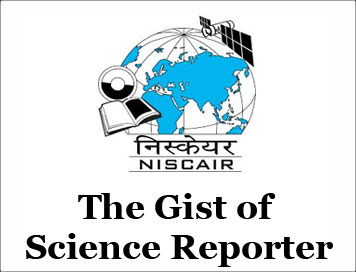(HOT) UPSC Current Affairs 2025 PDF
NEW! The Gist (NOV-2025) | E-BOOKS
(The Gist of Science Reporter) A Push for Artificial Intelligence Research [MARCH-2018]
(The Gist of Science Reporter) A Push for Artificial Intelligence Research
[MARCH-2018]
A Push for Artificial Intelligence Research
The budget presented on 1st February 2018 in the Indian Parliament signaled the government’s intention to push for the development of cutting-edge technologies like machine teaming, Artificial Intelligence, Internet of Things and 3D printing. The NITI Aayog has even been asked to prepare a roadmap for a nationwide programme in artificial intelligence, including research and development of its applications. The government has also promised to offer incentives to startups and venture funds that undertake application-oriented research on artificial intelligence across key sectors including banking. Insurance, education, health, retail and transportation. While, to begin with, funds under the Atal Innovation Mission will be used to catalyse programmes on a nationwide scale, the Department of Science & Technology is also looking into setting up centers of excellence that will push investments in “research, training and skilling in robotics, artificial intelligence, digital manufacturing, big data analysis, quantum communication.
Artificial Intelligence (AI), machine learning and robotics have of late been subjected to a lot of debate primarily on account of fears that robots might soon take up most of our jobs. The fears could be real to some extent. Oxford University researchers estimate that 47% of all current US employment is at high risk to become automated over the next decade or so. According to another study by the Bank of England, 48% of human workers will eventually be replaced by robotics and software automation in the banking sector. Another agency Ark Invest predicts that 76 million U. S. jobs will disappear in the next two decades.
But then there is a flip side too. According to a recent report from Gartner, of the 1.8 million jobs AI is predicted to get rid of, it will also create 2.3 million by 2020. Another report from Capgemini (2017) found that 83% of companies using AI say the technology is already adding jobs; 75% of Firms that have implemented AI said that it contributed to a 10% increase in sales, and 63% of companies that implemented AI reported no job destruction due to the technology.
According to experts, AI and related fields will continue to see job growth for the next five to ten years. These jobs include machine learning engineer, data scientist, research scientist, R&D engineer, business intelligence developer and computer vision engineer among several others. Most of these jobs are beginning to get in demand recently. Of course, mechanical jobs risk being outsourced to machines increasingly. Even now robots and intelligent machines are making factories more efficient. They are also taking up the dirty and dangerous tasks of human beings, for instance, fire fighting, defusing bombs, and even flying to outer space where it is not yet possible for humans to venture.
With every new evolution, intelligent machines are also getting better at handling errors that occurred in previous generations. So, fears of catastrophic consequences of malfunctioning of machine-based systems can also be laid to rest. A push for research and training in robotics, artificial intelligence, big data analysis, and the like is highly desirable in the Indian context if we are to stay abreast of cutting-edge technologies and also to create new avenues for jobs.
Study Material for UPSC General Studies Pre Cum Mains
This is Only Sample Material, To Get Full Materials Buy The Gist 1 Year Subscription - "Only PDF" Click Here
Click Here to Download More Free Sample Material
<<Go Back To Main Page
Courtesy: Science Reporter


